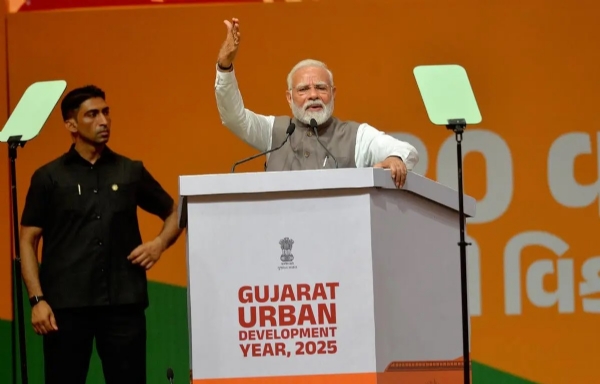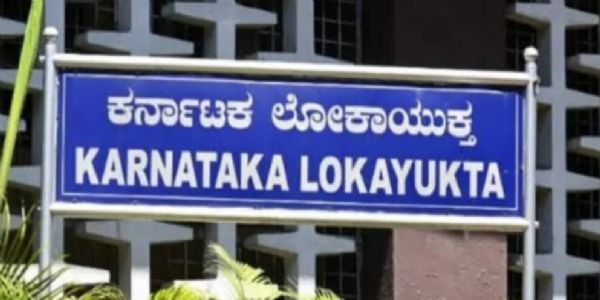
Gandhinagar, May 27 (H.S.): On Tuesday, Prime Minister Narendra Modi addressed an event at the Mahatma Mandir in Gandhinagar, emphasizing the urgent need to prioritize urban bodies to elevate India’s economy from its current fourth position to a projected second position. He underscored the importance of transforming urban areas into dynamic economic centers, rather than allowing growth to be merely driven by population increase. This address was part of a ceremony commemorating 20 years of Urban Development Year and launching 2025 as the next Urban Development Year.
During the event, he inaugurated and laid the foundation for projects totaling ₹5,536 crore across various departments including Urban Development, Roads and Buildings, Water Resources, Health, and Revenue. Modi particularly highlighted the potential of Tier 2 and Tier 3 cities to become economic hubs, urging state governments to establish goals for these urban bodies to enhance their economic contributions within a year. He noted the importance of improving product quality in cities and fostering new avenues for economic activity. Modi pointed out that although many municipalities focus on creating large shopping centers, such projects do not necessarily yield significant local benefits. He highlighted the need for value addition to agricultural products, benefiting both urban and rural areas.
The Prime Minister indicated that the country currently boasts around 200,000 startups, with a high concentration in Tier 2 and Tier 3 cities, many of which are led by women, signifying a transformative potential. As the Urban Development Year marks its 20th anniversary, he anticipates meaningful changes within these cities, with education and athletic representation showing considerable improvement, revealing the vibrant growth of smaller towns.
While addressing these issues, Modi also criticized the opposition, accusing them of undermining India’s progress due to ideological biases. He pointed out that many districts lag behind state averages, with the Central Government instigating development strategies based on extensive investigations to uplift underperforming areas.
Transitioning to his stance on terrorism, Modi recalled the tragic events following India’s partition in 1947, remarking that terrorism took root in Kashmir that very night. He lamented that had the early terrorists been dealt with decisively, as suggested by Sardar Patel, India might have avoided decades of conflict. He underscored the ongoing terror threats posed by Pakistan, which, realizing it cannot defeat India in a conventional war, resorted to proxy warfare by training and dispatching terrorists.
Modi conveyed that recent military actions, described as swift and decisive, should not merely be categorized as proxy warfare but recognized as direct acts of war. He referenced operations post-May 6, where nine terrorist strongholds were neutralized rapidly, reinforcing the assertion that India will respond equally if Pakistan continues its strategy of conflict.
Finally, he remarked on the shortcomings of the Indus River water agreement, suggesting further discussions were warranted. Prior to Modi's address, the gathering included contributions from Union Minister for Urban Development and Housing, Manohar Lal, and Gujarat Chief Minister Bhupendra Patel.
Hindusthan Samachar / Jun Sarkar







